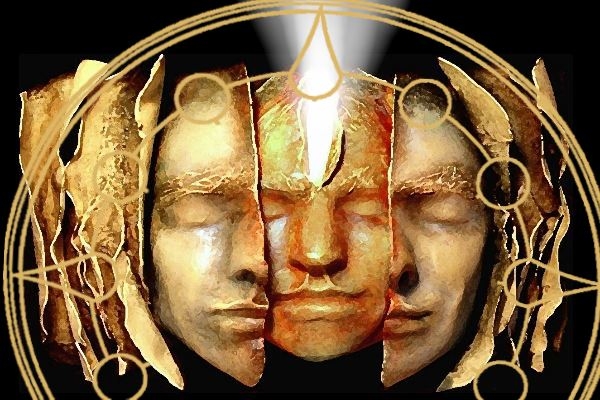By: Donna Woodwell
If you believe psychology is a merely a modern invention of a narcissistic age, you haven’t been paying attention.
While the “scientific” study of psychology in a laboratory may be a relatively modern notion, (re)invented by researchers in the 19th and early 20th centuries, the study of the mind has ancient roots in all human cultures. The Hellenistic world that gave rise to astrology (in the form we know and love) is no exception. In fact, many of the concepts we think of as part of the modern study of psychology have deep roots in the Hellenistic world.
The term “psychology” was first used in the mid-18th century, and is derived from the Greek words psyche, meaning breath or soul, and logos, for word, reason or study. “Therapy,” too, derives from the Greek word therapeia — to heal or care for, especially to provide medical attention.
Psychology is the study of the mind, its properties and functions, including such varied concepts as reason, awareness, memory, emotions, dreams, behavior, depression and mental disorders. By exploring the subjective experience of the human condition, modern psychologists seek to broaden our understanding of ourselves, as well as to find methods to reduce suffering and to promote happiness, success and overall well being.
Though the ancient Greeks and Romans may not have sought out a psychotherapist’s couch to talk through their personal challenges, there certainly were myriad other ways in which the ancients strived to improve one’s mind or thinking processes in order to promote physical and emotional health, or general well-being.
The role of the modern psychotherapist was spread across philosophers, physicians, priests, shamans, magicians and – yes – good friends.
The greatest written corpus of the psychological discourse of the ancient Greeks and Romans comes from the writings of philosophers – “lovers of wisdom.”
From the earliest philosophical writings in the 5th and 6th centuries BCE, philosophers contemplated the mind, how it works, how humans can be swayed by argument or eloquence, the structure of the mind and soul, and what it is to live a good life. Aristotle’s theories of virtues and ethics are still essential reading for any discussion of morality and right action.
But their understanding of philosophy was more than just an academic discipline as we think of it today; philosophy was a way of life.
Communes of philosophers (including men and women) lived together to engage in dialogue in order to explore how the mind works, and how it can be improved. Mental disciplines and exercises devoted to mastering ones thoughts, emotions, and behaviors can be found in philosophical schools from Neo-Platonism to Stoicism to Epicureanism. These included such techniques as self-observation, meditation, critical thinking, dialectic and questioning, and considering exemplary role models. One of the most famous examples of the exercise of Stoic self-analysis may be found in the diaries of Roman emperor Marcus Aurelius.
The ancient Greeks and Romans also practiced shamanic-like rituals for understanding the nature of self and cosmos, as well as for healing.
The mystery schools likely used a combination of ritual and psychedelics to aid seekers to experience the self in a new way. Dream incubation and the interpretation was a staple of the healing temples of Asklepios. In fact, one of the world’s oldest surviving books on dream interpretation, the Oneirocritica, was penned by Artemidorus in the 2nd century CE based on hundreds of his case studies throughout the classical world. The astral theurgy practiced by Julian the Theurgist and Iamblicus even sought to use planetary rituals and images as a tool for bringing one closer to an apprehension of divine oneness.
Even good friends had a duty to lend a sympathetic ear. Philosophers from Plato to Aristotle, Cicero and beyond, extolled the virtues and obligations of friendship. The ancient recognized humans as social creatures, with the need to relate to others, the healing affect of a “positive attitude” and of having a safe place to share one’s concerns about life, the universe and everything.
In fact, the more one looks at the remnants of the classical world, the more evidence of the antecedents to modern psychology one finds.
While we may not use exactly the same means, our goal of finding healing, fulfillment and contentment for body, mind and soul endures. Values such as the striving for excellence, sound body and mind, happiness and temperance, and desire to connect with divinity, were part of the culture which produced horoscopic astrology, and therefore, taken as truth or common sense wisdom.
Just as astrologers need to read the works of Carl Jung, Joseph Campbell, the writings of the Theosophical Society or other new-age thought, to understand how and why modern astrology has evolved the character it does, we also need to understand the worldview of their ancient predecessors to understand the role astrology may have played in the process of finding wholeness and healing in the ancient world.
Ancient “psychological” techniques may provide an excellent complement to more modern therapies, and are perhaps ideally suited techniques for working in an astrological context.



